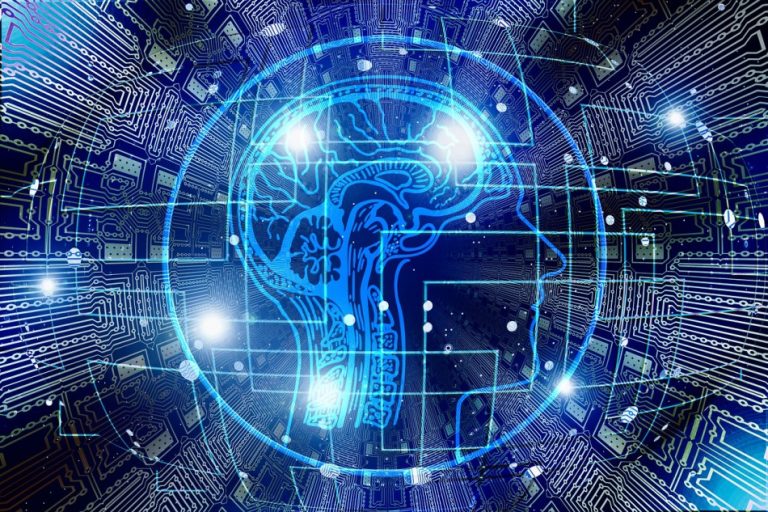Introduction: A New Frontier Meets an Old Soul
AI is like this massive thing humans have managed to pull off. Machines that can learn, make decisions, and pretty much act like they’re thinking. Now, India’s stepping up as a leader in all this AI jazz, but every time people talk about ethics, it’s always coming from a Western angle. Feels like something’s missing, right? Where’s the Indian side of the story? There’s a whole way of looking at things through dharma, karma, that old-school pursuit of knowledge and doing things responsibly.
This is kind of what I want to get into here, mixing that ancient Indian way of thinking about intelligence and right and wrong, and seeing how it can actually help steer AI in a good direction. In a world that’s always rushing to be “better” or “smarter,” maybe India’s old texts have a clue about how to keep intelligence (real or artificial) working for everyone’s good, not just for the sake of progress.
Revisiting the Concept of Intelligence in Ancient India
Ages before everyone started freaking out about AI, Indian thinkers were already deep in talks about consciousness, how we think, and what intelligence really is. But they saw it way differently than how we talk about AI now. Instead of just focusing on data and speed, ancient Indian philosophy broke things down into intelligence (buddhi), knowledge (jnana), wisdom (viveka), and consciousness (chit), each with its own meaning.
Like, in the Bhagavad Gita, Krishna talks about buddhi yoga, the yoga of intelligence. But he’s not talking about being some kind of brainiac. He means being able to tell what’s the right thing to do, and sticking to it, based on dharma (basically, your moral duty).
And then you’ve got the Upanishads, which get pretty layered about intelligence. The Taittiriya Upanishad lays out these different “koshas” or layers of existence. You start with the physical body (annamaya kosha), then go to the layer of intellect (vijnanamaya kosha), and finally end up at the blissful consciousness (anandamaya kosha). So, for them, real intelligence isn’t just about being clever, it’s about lining up with something higher.
So, for AI ethics? If you’ve got intelligence but no wisdom or self-control, it can backfire. Ancient Indian texts always remind us that the highest intelligence comes with self-restraint, responsibility, and knowing what’s right.
Dharma and Design: What AI Can Learn from Indian Ethics
At the core of Indian philosophy, dharma operates as a dynamic system of ethics, a kind of adaptive guidance mechanism rather than a rigid set of directives. It’s grounded in principles like non-harming (ahimsa) and truth (satya), but its actual application depends on context: your position, the timing, the specific circumstances. In short, it’s engineered for flexibility, always aiming for an equilibrium.
Now, when it comes to AI, there’s an obvious challenge: can we encode dharma into a machine?
Machines lack consciousness, sure, but their architecture and behavior inevitably reflect the values of their creators.
A dharmic approach to AI design would demand that stakeholders, developers, corporate leaders, and policymakers actively embed ethical priorities into every layer of the technology stack. It’s about engineering systems that don’t just function but align with a broader responsibility to society.
- Social good over profit
- Transparency over efficiency
- Inclusivity over dominance
For instance, India’s use of AI in public welfare, such as for crop prediction, healthcare diagnostics, and judicial reforms, must be driven not merely by output efficiency but by the principle of “lokasangraha,” welfare of all.
The Cautionary Tale of Ravana and the Limits of Intelligence
In the Ramayana, Ravana was a polymath an accomplished scholar, a master of the Vedas, and a highly intelligent ruler. Yet his downfall came not from lack of intelligence, but from ego, moral failure, and the refusal to recognize boundaries.
This narrative offers a symbolic warning for the age of AI. The development of highly capable systems without ethical guardrails or humility can lead to collapse. When algorithms are optimized only for profit or power, without regard for unintended consequences, the result mirrors Ravana’s fate brilliance devoid of wisdom leads to destruction.
Lesson for AI Ethics: Capability must be tempered by ethical reflection. Intelligence is not virtue.
The Concept of “Yukti” in Indian Logic: Beyond Binary Thinking
The Nyaya and Mimamsa schools of Indian philosophy developed highly sophisticated systems of formal logic, reasoning, and debate not unlike the decision trees and inference engines behind AI today. But they also emphasized “yukti” intelligent, flexible reasoning that respects context and consequences.
This is radically different from the binary yes-no logic often coded into AI systems. Ancient Indian thinkers knew that truth was not always absolute. Ethics had to adapt to intention, outcome, and dharmic context, something today’s AI systems still struggle to emulate.
Incorporating this layered reasoning could improve AI decision-making in fields such as:
- Justice: Judgments need nuance, not just data.
- Healthcare: Diagnoses must consider cultural and social contexts.
- Education: Learning must be personalized, not standardized.
Purusha and Prakriti: AI and the Consciousness Debate
The Samkhya school outlines two fundamental principles: Purusha (consciousness) and Prakriti (nature, matter, mechanics). While Prakriti evolves and operates under set rules (much like algorithms), Purusha is pure awareness, non-mechanical and unchanging.
This framework can be used to distinguish between AI (Prakriti) and human consciousness (Purusha). No matter how advanced machines become, ancient Indian thought suggests they cannot possess subjective awareness. Therefore, AI should serve as a tool, never as a substitute for human judgment.
Implication:
We must never delegate final authority to AI, especially in domains involving ethics, life, or justice. Machines can process patterns, but only human consciousness can truly discern meaning.
Karma and Accountability in AI Systems
In the Indian worldview, every action has consequences seen or unseen guided by the law of karma. Karma is not just fate; it is a sophisticated system of accountability where intent matters as much as outcome.
Applying this to AI ethics raises important questions:
- Who is responsible when AI causes harm?
- Should creators be karmically accountable for systems that learn and evolve beyond their design?
- Can AI decisions be reverse-audited with ethical transparency?
India’s ancient karma theory pushes us to consider accountability as layered, long-term, and not easily outsourced. Ethics is not a one-time design input. It is a continuous moral obligation.
A Vision for the Future: Bharatiya Ethics in Global AI Governance
As India shapes its AI governance frameworks, integrating ancient philosophical thought could offer the world a holistic, human-centered alternative to the narrow utilitarianism that dominates global tech policy.
What would that look like?
1. AI as Sevak, not Swami
AI must serve public interest and not become an invisible ruler. This requires strict control over autonomous decision-making in sensitive domains.
AI for Antyodaya
In line with Gandhian principles, AI should first benefit the most vulnerable. Whether in rural healthcare, agriculture, or justice delivery, the focus should remain on equity and dignity.
3. Transparent Algorithms, Open Karma
AI systems should be explainable, and their decisions traceable. Just as karma is inescapable, so too should be the chain of accountability in tech design.
Reclaiming the Soul of Intelligence
India is uniquely positioned to influence AI development with depth rather than just velocity. Our classical texts, the Gita, the Upanishads, the Itihasas, the Darshanas, provide analytical frameworks regarding the relationship between intelligence and ethics, emphasizing that knowledge must be aligned with dharma, and technology should remain subordinate to the complexities of life itself.
As the global trajectory accelerates toward advanced artificial intelligence, India’s philosophical traditions underscore a critical insight: intelligence is not solely a function of data accumulation, but is fundamentally measured by responsible application.
Should we integrate these longstanding principles, our approach to AI can prioritize not only computational power and efficiency, but also justice, ethical rigor, and wisdom. This integration could enable the development of AI systems that are both technologically advanced and grounded in ethical context.










